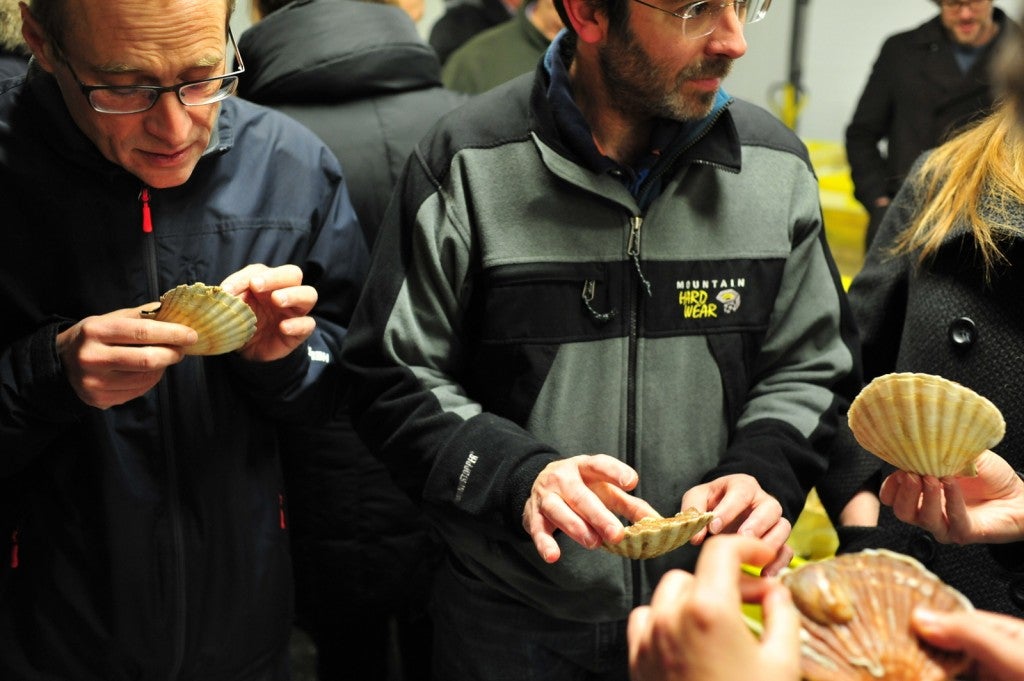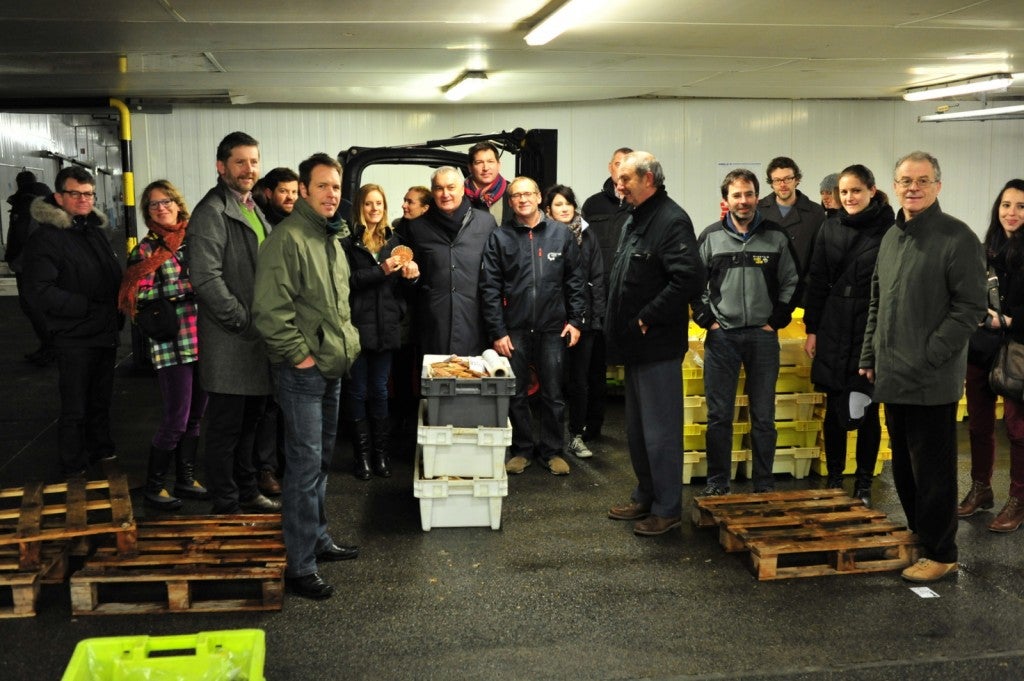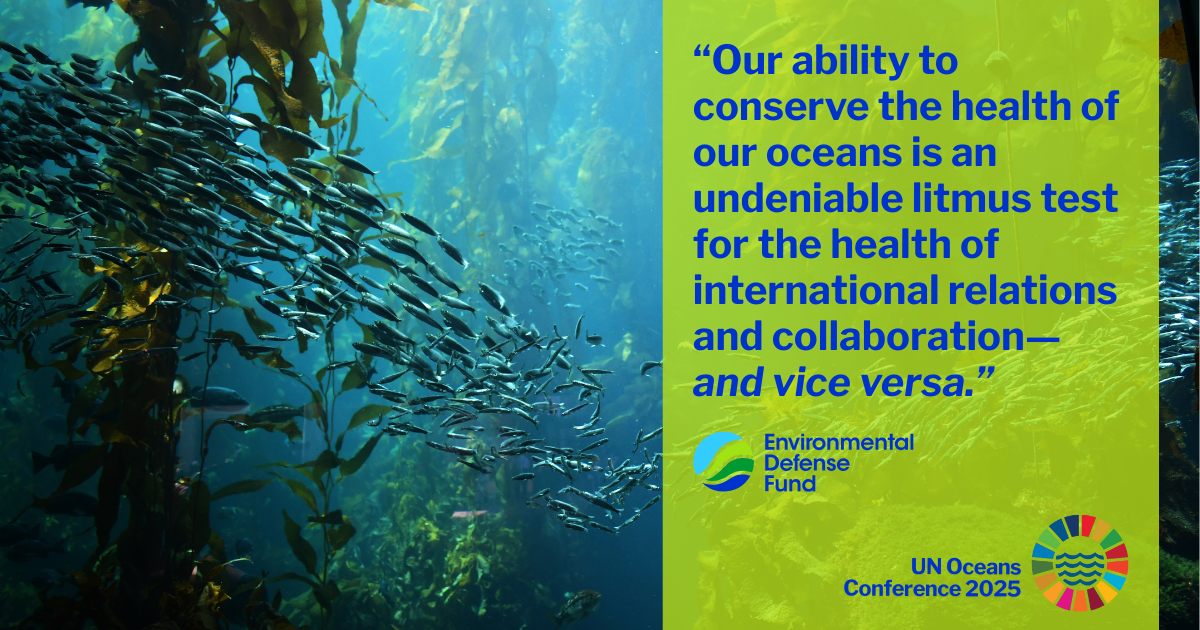French and UK Channel Scallop fishermen lowering barriers and putting dialogue into action

Since 2012, when the increasingly hostile clash between French and UK Channel scallop fishermen made headlines; industry leaders, national administrations and a host of other stakeholders have worked to resolve the conflict and achieve positive change to protect the viability of this economically and culturally important fishery. The work of the GAP2 Project, an EU funded initiative, has been a vital force in the progress achieved so far in alleviating historic tensions and moving towards a more conciliatory approach.
In a previous post outlining the successes and challenges of the first GAP2 Channel scallop workshop in Brixham, England I spoke of the importance of bringing industry and others together to engage in participatory and collaborative dialogue on achieving greater profitability and sustainability for this valuable fishery. I also emphasised the need for a follow up workshop focused on putting dialogue into action and mapping out next steps to develop a regional management plan.
Jim Portus, Chair of the South West Producer Organisation (SWFPO) shared our optimism and desire to focus on actionable results noting that, “we can build on the progress made in Brixham and can now focus on achieving a sustainable and profitable industry in the future.”
The follow up workshop, which took place in Normandy, France earlier this month, achieved our shared goals. EDF once again teamed up with WWF-UK and the GAP2 Project to deliver an action-oriented event which focused discussion around the specific needs of this fishery and encouraged participants to put dialogue into action.
 Over 55 participants from both sides of the Channel involving industry leaders, scientists, policy-makers, NGOs and others; applied their expertise, skill and passion to work through more concrete ideas for building a sustainable, profitable future for the Channel scallop fishery.
Over 55 participants from both sides of the Channel involving industry leaders, scientists, policy-makers, NGOs and others; applied their expertise, skill and passion to work through more concrete ideas for building a sustainable, profitable future for the Channel scallop fishery.
It’s clear that the conversation has moved on significantly since the Brixham event. Participants exhibited an increased willingness to immediately engage across groups towards common goals, signalling the possibility for real change. Key themes and actions included:
- Developing an industry-led working group to govern and lead future discussions on Channel scallop management. This group might operate most effectively through a sub-group of the North Western Waters Advisory Council (NWWAC) where a well-functioning governance model already exists for Channel fisheries issues.
- Establishing a science and data focus group with the aim of designing regional protocols for data collection on both sides of the Channel. A more standardised approach to data collection and analysis was identified as key in securing a robust evidence-base to inform future stock management.
- Recognising the need for harmonisation without homogenisation. This means enabling fishermen and fishing representatives to respect that different segments of the fleet operate in different ways. However, while there may be managerial and cultural differences in the way people fish, it’s clear that all those accessing a shared resource must do so through a common vision.
For any process towards change it is crucial to create the right environment, bringing people together at the right time and encouraging effective partnership working. The Normandy scallop workshop brought a wide range of groups together to discuss important issues facing the Channel scallop fishery. However, it is important to recognise that while NGOs and other stakeholders can help facilitate conversations, the real change must come willingly from industry through collaboration as well as increased trust and reciprocity. The potential for this change can be illustrated best through industry reflections on the two day event:
Daniel Lefevre, Chair of the Channel Working Group of the NWWAC referred to the Channel as our “shared garden” where “managing the resource is possible only if we agree”. He further went on to say that “we cannot define a long-term management plan without shared measures. There is still a lot of work to do, but with the will, we can achieve anything. I think a Scallop management group must be created.”
Industry has a timely opportunity to build on the momentum and positive engagement from both the Brixham and Normandy workshops to drive forward change. Next up is the NWWAC meeting in Bilbao, Spain in April where the GAP2 scallop team will have an opportunity to present the workshop ‘roadmap’ to Council members. We look forward to Mr. Lefevre putting dialogue into action when he proposes the idea for a ‘Channel scallop working group’ to the Council.
The opportunity for change has never felt so big. John Hermes, Chair of the UK Scallop Association, said it well when he spoke of the “need to embrace the four C’s: collaboration, communication, companionship….and calvados!” The GAP2 team would like to add their fifth ‘C’: courage.












